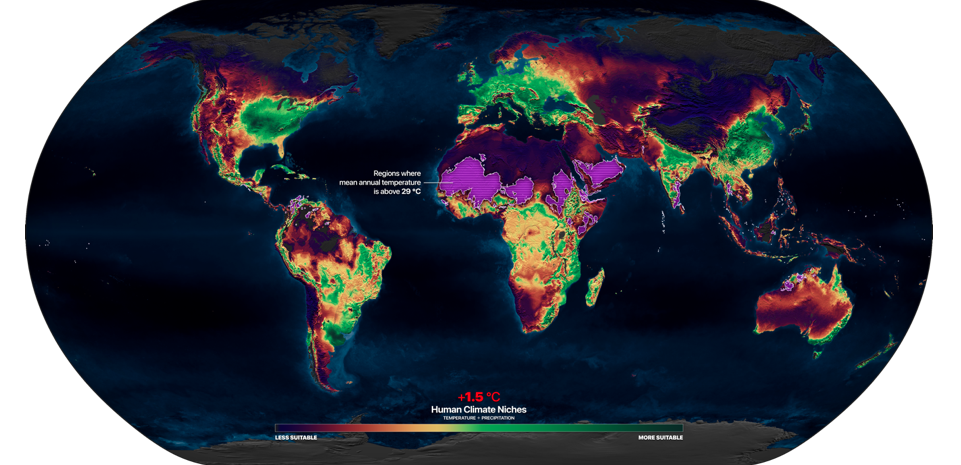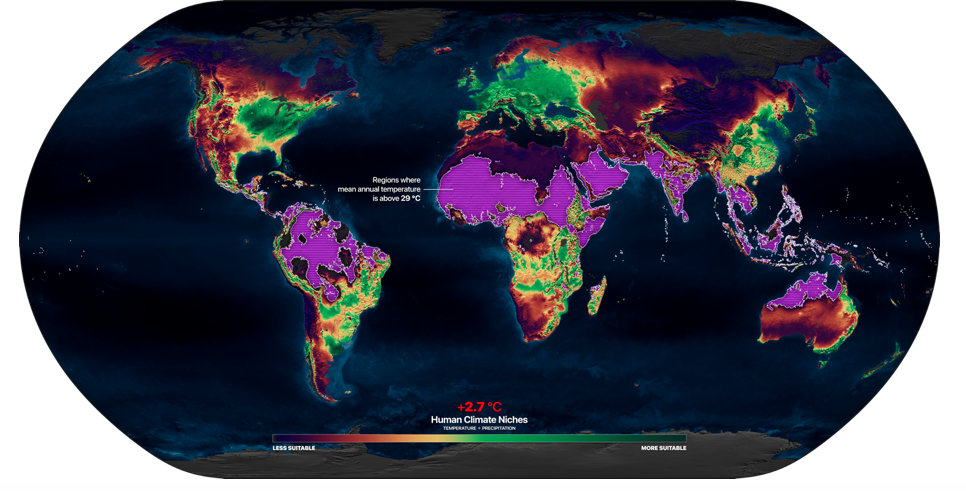May 26, 2023

Mindil Beach, Darwin, ablaze at sunset..
Image credit: Shutterstock
New research suggests that, if the planet keeps warming at current rates, much of the top third of Australia could soon be too hot for people to live in.
An article published this week in the journal Nature Sustainability warns that, if Earth remains on its current trajectory of warming, a huge swathe of northern Australia, including our northern capital Darwin, will become exposed to extreme heat.
The research, undertaken by a team from the UK, China, Germany, the Netherlands, Denmark, Austria and the US, looked at the cost of climate change in ethical terms.
It found that the area of our planet where it’s neither too cold nor too hot for humans to live – known as the “human climate niche” – is already shrinking fast.
And that suggests that climate change is rapidly making parts our planet very difficult to inhabit for the human species.
“We show that climate change has already put ~9% of people (>600 million) outside this niche,” the report said. “By end-of-century (2080–2100), current policies leading to around 2.7 °C global warming could leave one-third (22–39%) of people outside the niche.”
The paper explored how much of the planet will be ‘less suitable’ – that’s cautious scientist terminology for virtually uninhabitable – for humans if we reach just 1.5 degrees warming by the end of the century, the target set by the Paris Agreement in 2015.

But it’s widely known that, although some mitigation around the world has stalled the rising climate crisis, we’re on a path to reach global warning of 2.7 degrees before the end of the century if things don’t change drastically.
And, the research showed, that will mean that massive expanses of northern Australia will be among the areas of Earth where humans will be exposed to dangerously high environmental temperatures.

Lead author on the study, Professor Timothy Lenton, Director of the Global Systems Institute at the University of Exeter in the UK, told Australian Geographic, “‘Unliveable’ is probably too strong, but the area goes to unprecedented temperatures that historically in a global perspective support negligible population density.”
He added that, “The extreme heat is sure to pose considerable challenges.”
“High temperatures,” the paper warned, “can decrease labour productivity, cognitive performance and learning, produce adverse pregnancy outcomesand increase mortality.”
It added that its results “highlight the need for more decisive policy action to limit the human costs and inequities of climate change.”
“Reducing global warming from 2.7 to 1.5 °C results in a ~5-fold decrease in the population exposed to unprecedented heat.”
 Related: ‘It can be done. It must be done’: IPCC delivers definitive climate change report
Related: ‘It can be done. It must be done’: IPCC delivers definitive climate change report
